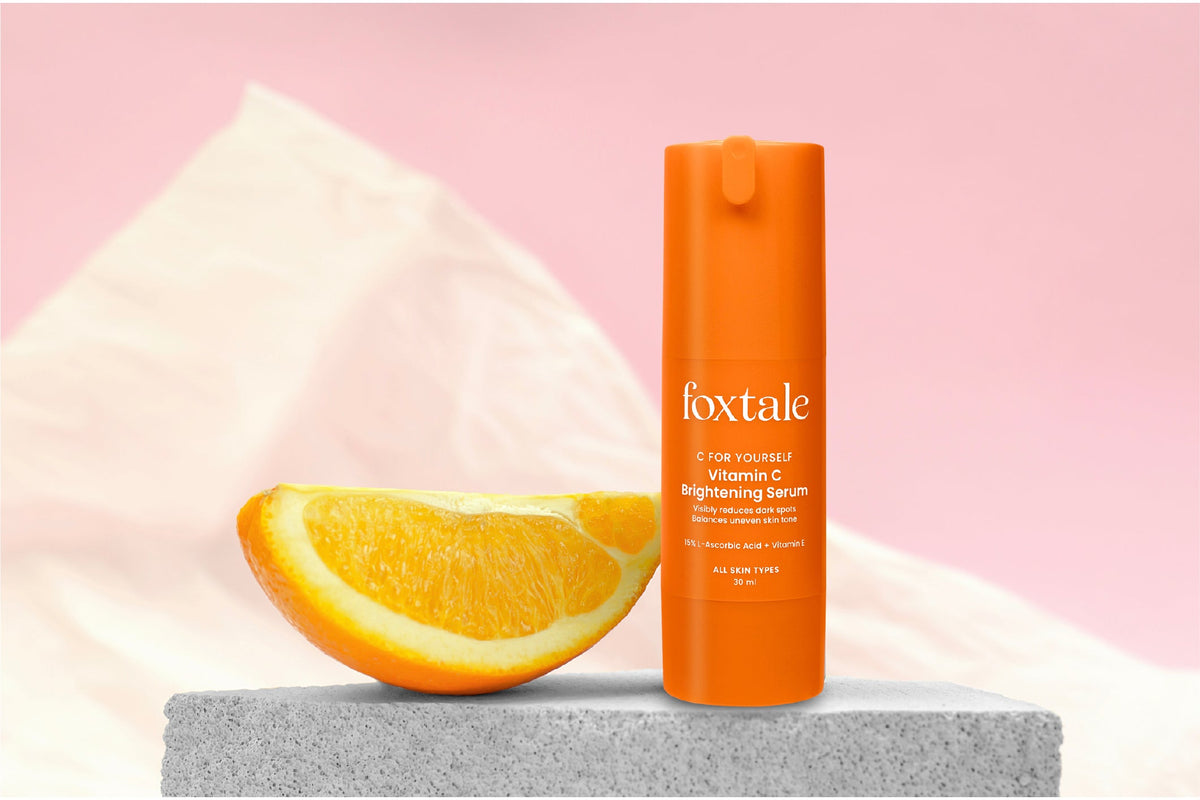
Vitamin C is a powerhouse in skincare. A well-formulated vitamin C serum for face can brighten, smooth, and protect like no other product. But there’s a catch: it’s notoriously unstable. If you don’t handle or store it properly, it breaks down quickly and loses its punch.
That’s why storage isn’t just a technical detail—it’s the difference between a serum that delivers results and one that’s a waste of money. Let’s walk through what causes Vitamin C to spoil, how to spot when it’s gone off, and the best way to keep it fresh.
Why Does Vitamin C Serum Oxidize?
What Oxidation Really Means
Vitamin C, especially in the form of L-ascorbic acid, is delicate. The moment it comes into contact with light, air, or warmth, it begins a reaction called oxidation. Chemically, the structure changes, and with it, the benefits disappear. Instead of brightening your skin or fighting free radicals, oxidized Vitamin C can trigger irritation.
Main Triggers
Three things speed up this breakdown:
1. Light – UV rays or even strong indoor light can destabilize the serum.
2. Air – Every time the bottle opens, oxygen creeps in and starts the chain reaction.
3. Heat – Warm, humid spaces (like your bathroom shelf) accelerate the decline.
Some formulations hold up longer, especially those paired with stabilizers such as ferulic acid or Vitamin E. Still, no Vitamin C serum is immune if it’s poorly stored.
How to Tell If Vitamin C Serum Has Gone Bad
You don’t need a lab test. A quick look, a sniff, or how your skin reacts will tell you.
1. Look at the Color
Fresh Vitamin C is usually clear or faintly cloudy. If it shifts to dark yellow, orange, or brown, oxidation has set in. Texture changes—like clumping, thickening, or separation—are also signs it’s past its best.
2. Notice the Smell
When it’s fresh, the serum may have little scent, sometimes slightly sharp. If it turns sour, metallic, or just “off,” it’s time to stop using it.
3. Watch Your Skin
If your skin suddenly feels itchy, red, or more sensitive than usual from the same product you’ve been tolerating well, the serum could have gone bad.
How to Store Your Vitamin C Serum
1. Choose Protective Packaging
The safest formulas come in dark, amber, or opaque bottles that block light. Pumps or tightly sealed droppers keep air exposure to a minimum. For instance, Foxtale’s Vitamin C Serum is packaged with stability in mind, so the Vitamin C in skincare actually stays active until it reaches your skin.
2. Keep It Cool and Dark
Place your serum in a drawer, cabinet, or skincare fridge. Heat and humidity are the enemy, which makes bathrooms a poor choice. Even if you like everything handy at the sink, storing Vitamin C there will cut its life short.
3. Handle It Correctly
Always twist the cap back tightly. Don’t let the dropper touch your face or fingers, since oils and bacteria can spoil the formula. Think of it like food—clean handling keeps it safe longer.
How Long Does Vitamin C Serum Last?
1. Typical Shelf Life
An unopened bottle often lasts close to a year. Once opened, most formulas deliver peak benefits for about three to six months. Stabilized blends may hold up a little longer, but time always works against Vitamin C.
2. Signs of Expiry
Colour turning brown, an unpleasant smell, or lack of visible results are all warnings. If your serum no longer brightens, fades spots, or evens out tone, the Vitamin C may already be inactive. Using it past this point doesn’t help—and can even irritate your skin.
Wrapping It Up
Vitamin C is one of the most effective ingredients you can add to your routine, but it’s also delicate. The way you store it—dark bottle, cool place, cap closed tight—decides whether you see the Vitamin C serum benefits or not. Treat it with care and you’ll get every drop of value from your bottle.
FAQs
How to apply Vitamin C serum?
After cleansing and drying your skin, apply three or four drops to your face and neck. Let it sink in, then follow with moisturizer and sunscreen. Many people prefer using it in the morning for antioxidant protection during the day.
What does Vitamin C serum actually do?
It helps fade dark spots, evens skin tone, and brightens dull complexions. On top of that, it supports Collagen production, which softens fine lines and helps keep skin firm. That’s why the best Vitamin C serum is often considered a must-have.
Is Vitamin C serum good for dry skin?
Vitamin C doesn’t hydrate the skin on its own, but when it is used in combination with humectants like Hyaluronic Acid, then this combination becomes best for dry skin. Just remember to apply a nourishing moisturizer afterward.




